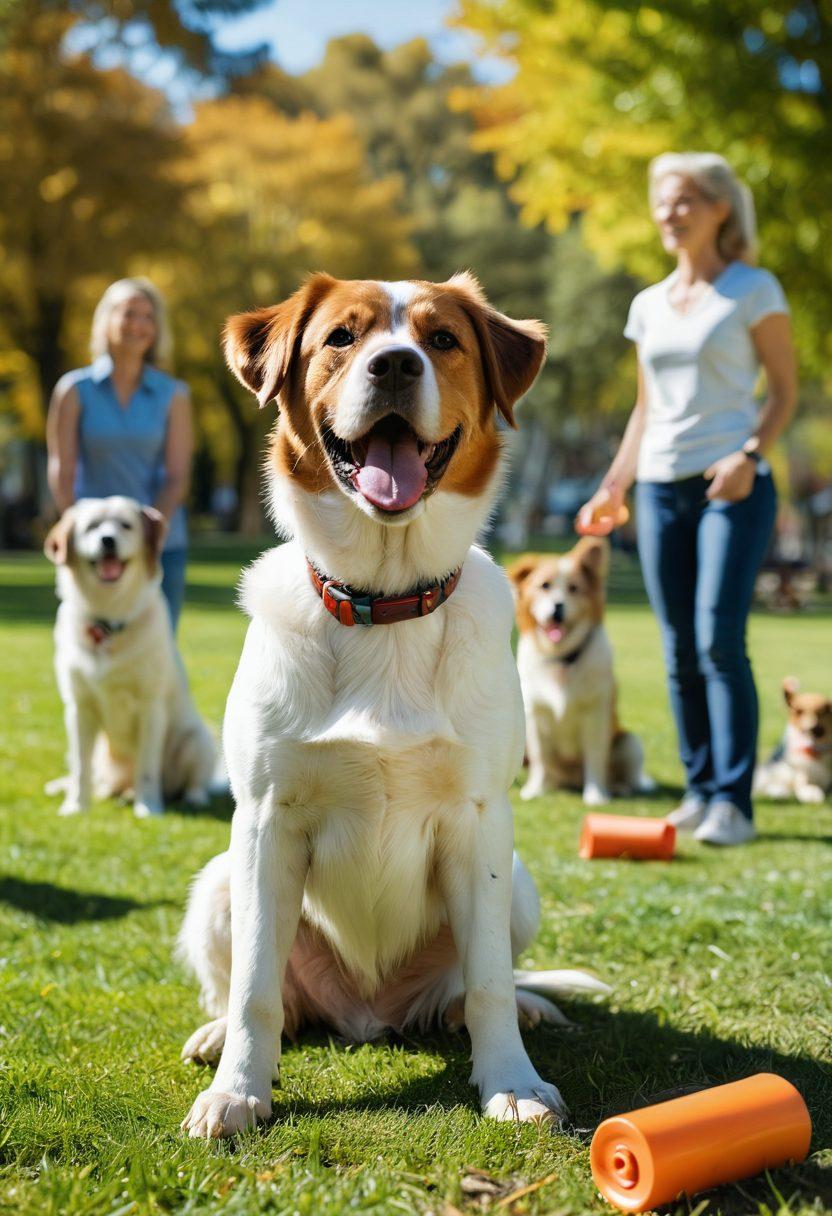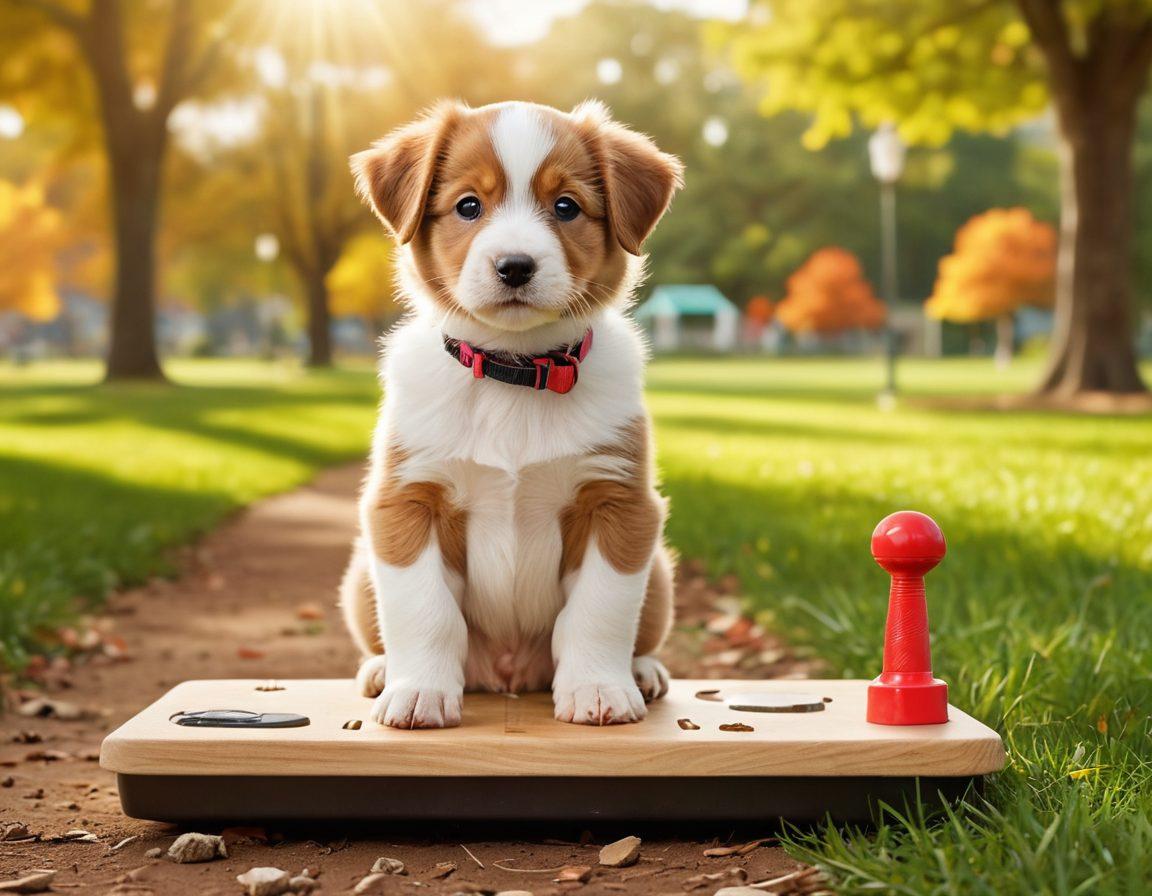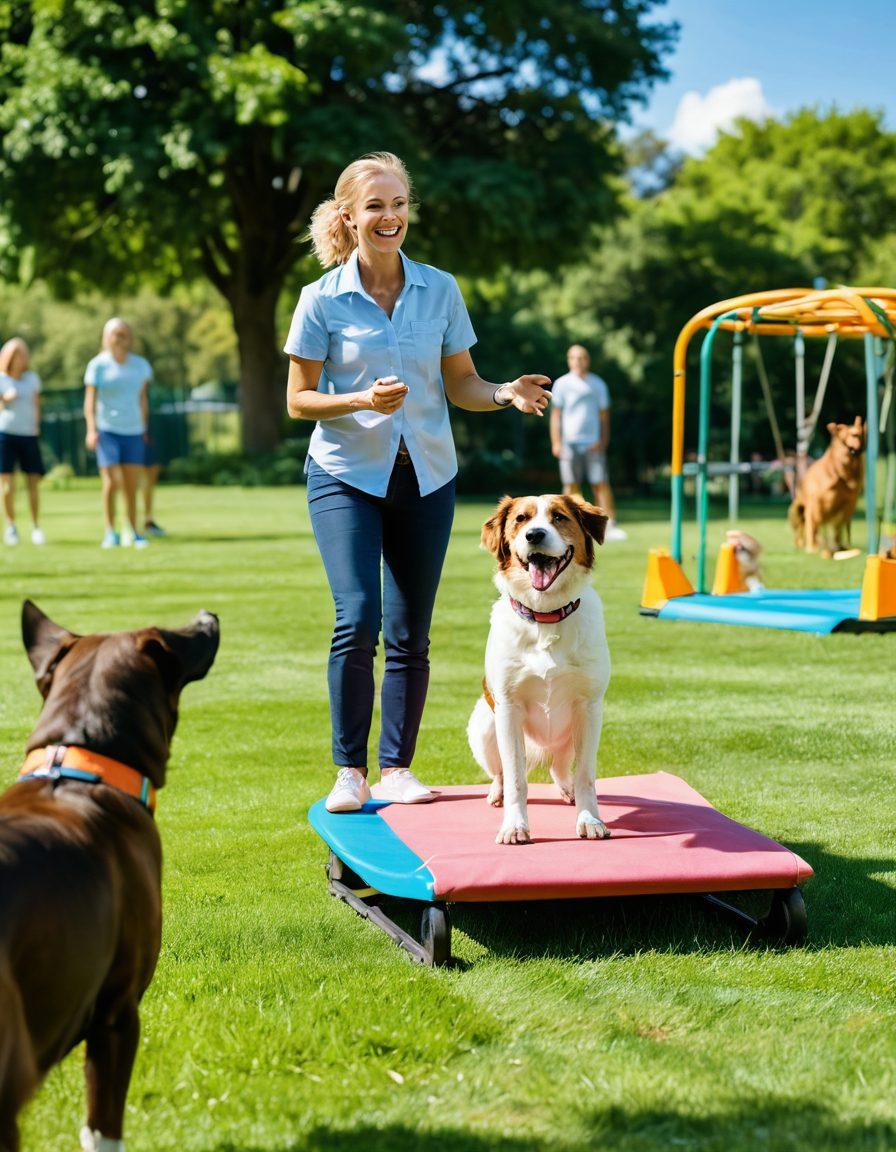Unlocking Your Dog's Potential: Essential Training Techniques for Every Canine Companion
When it comes to dog training, many pet owners quickly realize that training is not just a one-time event but a lifelong journey. Have you ever watched a well-behaved dog execute commands flawlessly? It’s an impressive sight, isn't it? The truth is, mastering the art of dog training is less about the tricks and more about the bond you create with your canine companion. Whether you're a new dog owner or a seasoned dog handler, understanding the core techniques of dog behavior can help you nurture a respectful and loving relationship with your furry friend.
Imagine this: it’s a sunny afternoon, and you decide to take your dog to the park. The sun is shining, birds are chirping, and there’s nothing but joy in the air. Then, suddenly, your dog spots another furry friend and bolts away before you can say, 'Sit!' This scenario is all too common for many pet owners, but interestingly, it's a teachable moment. Training your pet in obedience isn't just about having a well-behaved dog; it’s also about ensuring their safety and your peace of mind. A trained dog is a happy dog, one that can join you on adventures without the fear of them getting lost or in harm's way.
So, what are the essential dog training techniques every pet owner should know? Let's start with the foundation: positive reinforcement. This is a powerful tool used by many canine experts. Rewarding your dog for exhibiting desired behaviors not only strengthens your communication but also encourages them to repeat those behaviors. Whether it's a treat, a belly rub, or simply your praise, positive reinforcement can turn training into a rewarding experience for both of you. Remember, the goal is to cultivate an atmosphere of trust and motivation, where your dog feels encouraged to learn and grow.
Another crucial aspect of canine training is consistency. Imagine if you made the rules of your household change every day; it would be overwhelming! The same principle applies to dog training. Establish clear commands and stick to one version of each command to avoid confusing your canine companion. Want them to sit? Use the same tone and words every time. This consistency builds familiarity and enhances dog skills, helping your pup understand what you expect. Do you ever wonder why some dogs seem to respond perfectly while others struggle? Often, the success lies in the consistency of their training sessions and commands.
Lastly, consider looking into professional dog training services if you feel overwhelmed or unsure about tackling certain behaviors alone. A canine coach can provide invaluable insights tailored to your dog's unique personality and needs. Not all dogs learn in the same way, and a skilled trainer can help you dig deeper into the world of dog education. Plus, training classes are a great opportunity for socialization and building that vital bond with fellow pet owners. By investing in your pet’s education, you pave the way for pet mastery, setting the stage for a lifetime of companionship and happy adventures together!
From Puppy to Pro: Transformative Training Methods for Your Canine Companion
Every dog, whether a tiny puppy or a wise old hound, has the potential to become a well-behaved canine companion. Have you ever watched a skilled dog handler perform tricks with their dog, and thought, 'I wish my dog could do that'? The good news is, with the right dog training techniques and a sprinkle of patience, you can transform your furry friend into a dog master that impresses everyone. Understanding the journey from puppy to pro not only enhances your relationship but also cultivates a lifetime of dog obedience and joy through creative pet training.
Let’s consider the first step in this transformative journey: puppy training. Did you know that the foundation of all dog behavior begins in the early months of a dog’s life? Just like young children thrive with early education, puppies benefit significantly from early canine training, creating a solid framework for their future. Picture this: your tiny pup learning to sit on command effortlessly at just a few months old, setting the stage for a well-rounded, confident dog that excels in dog skills. Such training is not just for show; it ensures a cooperative relationship between you and your canine companion throughout their life.
Have you ever struggled with your dog’s behavior? It’s easy to feel overwhelmed. But remember, every elicited bad reaction can often stem from misunderstandings in communication. As a pet owner, immersing yourself in dog education can help you become a canine expert who understands the thinking and emotions behind dog behaviors. By learning about your dog’s instincts and needs, you can establish pet obedience that thrives on mutual respect and trust, transforming potential mischief into opportunities for learning and bonding.
Ah, but what about when your dog is no longer a curious little puppy? What happens when they're all grown up, yet still struggling with basic commands? Don't fret! A good canine coach knows that no dog is too old to learn. Did you know that older dogs can exhibit remarkable behavior changes, much like when they were pups, if provided with the right training approach and consistency? It's never too late for dog training, and watching your canine companion evolve into a well-mannered pet can fulfill your dreams of pet mastery.
Ultimately, remember this – dog training is not just about obedience but building a connection that celebrates individuality. Each dog has its quirky personality and unique demands, so stay attuned to your pet’s needs. Engage in open communication; let your dog know you’re in it together. By harnessing the right dog training techniques and nurturing the skills that make your canine companion stand out, you’re laying down the groundwork for a lifelong partnership filled with love, laughter, and loyalty. Engage, explore, and enjoy every moment with your pet, turning every day into a new adventure in canine care!
Behavioral Insights: Elevate Your Dog's Skills with Expert Training Strategies
When it comes to transforming your furry friend into a well-behaved dog, understanding behavioral insights is paramount. Every dog, no matter its breed or background, has unique quirks and instincts that shape its personality and behavior. Just like humans, dogs have their own vulnerabilities and strengths. So, how do we unlock this potential and elevate our canine companions' skills through expert dog training strategies? The answer lies in the art and science of canine training, blended with love and patience.
First and foremost, it’s important to recognize that dog behavior is often a reflection of their needs and environment. For instance, a dog that digs incessantly might be trying to communicate boredom, while a pup that barks at the mailman may be demonstrating territorial instincts. Understanding these signals is a crucial step toward mastering effective dog obedience. As every experienced dog trainer knows, identifying the root cause of behavior can enhance the approach taken during pet training sessions.%0A So what can you, as a dog handler, do to elevate your dog's skills? Begin by adopting a positive reinforcement approach. This means rewarding desired behaviors instead of punishing unwanted ones. Studies have shown that trained dogs often thrive in environments that encourage learning through praise and treats. Try envisioning this: every time your dog sits on command, it receives a tasty treat and a pat on the head. The joy in their eyes? That's your pet's way of saying, 'This is fun! Teach me more!'
Next, let's dive deeper into the world of puppy training. Puppies are particularly impressionable, making it a prime time for dog masters to instill good habits and pet obedience early on. A captivating story comes from a canine expert who shares how a rescue puppy named Bella transformed from a shy wallflower to a confident canine companion through consistent training techniques. With regular socialization, easy commands, and positive reinforcement, Bella blossomed into an adored pet with exemplary skills. Consider this: What could your own puppy achieve with just a few focused training sessions weekly?
Moreover, consistency is key in dog education. It's vital to establish a routine that builds familiarity and trust between you and your dog. Imagine the difference in your pet’s behavior if they know what to expect—predictable walks, feeding times, and training sessions. This structure creates a sense of security for both you and your canine friend. A dog training technique that emphasizes routine is crucial, and remember, a calm dog is a happy dog!
Every dog parent can take conflicting insights about dog behavior and refine their pet mastery with just a few strategic techniques. Seek canine services or professional dog trainers that resonate with your philosophy on dog training. And ask yourself—what is your ultimate goal for your dog? Whether it’s practicing agility skills, achieving a flawless recall, or simply having a well-mannered pet at home, remember, dog training isn't a one-size-fits-all solution. With dedication, patience, and the right expert guidance, we can elevate our canine companions and experience the boundless joy of a harmonious relationship that flourishes with time.


